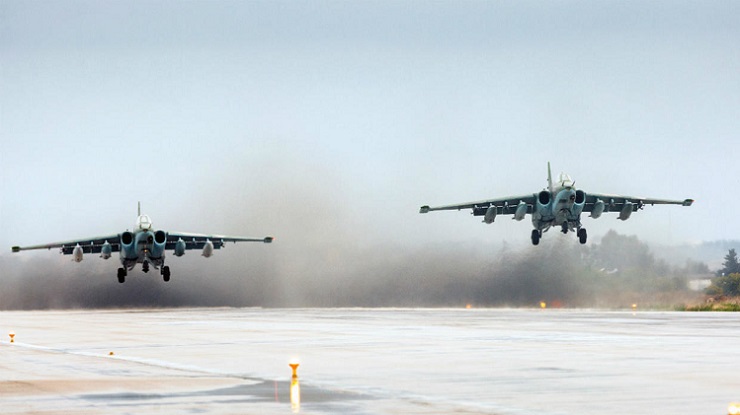Whereas the almost 6 hours long meeting between Erdogan and Putin did produce a ceasefire and resumed joint Russia-Turkey patrols of the M-4 highway, there is little gainsaying that Erdogan’s push for a meeting in Moscow resulted from a growing realisation with regards to the increasing difficulty of militarily holding the Syrian territories under its control. Both Russia and Syria had largely ignored Erdogan’s warning about withdrawing from Idlib’s de-escalation zone by the end of February. On the contrary, they decided to go ahead with their military operations, capturing some strategically significant territorial chunks, establishing new facts on the ground for Erdogan to digest.
At the same time, however, the ceasefire will give the Syrian Arab Army the necessary respite they needed out of the largely un-necessary war that Erdogan has imposed on them. The question, however, whether this ceasefire will lead to a peace settlement depends largely on Turkey and its policy with regards to the bone of contention: the jihadi forces of Tahrir al-Sham that Ankara continues to support against the Syrian army and the Kurdish militias.
As it stands, Tahrir al-Sham has already rejected the Moscow accord, indicating their intent to continue to do their ‘jihad’ in Syria, and thus further complicate the matters with regards to Syria’s push for bringing the entire Syrian territory under their exclusive control—an objective that both Syria and Russia don’t seem prepared to compromise.
There is a real possibility that Ankara, to advance its stated objectives, might just rebrand the al-Sham group and continue its support. As a matter of fact, such a possibility does exist as leaders of the jihadi group have already been making overtures about transforming themselves into a “political group.” Abu Muhammad al Jolani, leader of al-Sham, said in an interview that there is nothing wrong with such a ‘transformation’ and gaining ‘international legitimacy.’
TRT World, a Turkish state-run English news broadcast, has recently announced that the group has “chosen to take some initial and reorient the group to have a local focus and draw strength by embedding itself in Syrian society”, following a so-called “Taliban model” of assimilation and legitimation through continuous fighting over a period of time. As the TRT story said further, “The Taliban’s persistence in retaining, holding and administering territory while fighting the US and the Kabul-based government for the last 19 years has meant that Washington had to settle for a political solution.” By adopting the same policy, they can, in their calculation, force Syria and Russia to accept them as well.
For an al-Sham fighter, “no one wants to live under this regime or Russia. People have lost their loved ones, there is no plan to surrender. The fighters are connected with the local population, and there is great support from them.” In other words, as far as the claim goes, raw conditions for following the “Taliban model” does exist.
Given the Ankara backed jihadi outfit’s support for al-Sham and its propensity for continuing the fight means that the ceasefire achieved in Moscow remains hostage to Turkey’s geo-politics.
What it potentially means for peace in Syria is that Ankara would most likely continue to pursue it stated objectives and that it would probably use the ceasefire period to look for options and rearm and relocate its jihadi fighters. If it really is a matter of time that Ankara resumes its offensive against the Syrian Arab Army, Russia will be hard pressed not to sit on the sidelines and watch Ankara recapturing the territories that Syria has fought hard to bring under its direct control.
For Turkey, the Russian factor remains crucial and the related inability of Ankara to convince Moscow of allowing it a freeway. In fact, it was the same Russian factor that was at the heart of recent failure of Turkish adventurism. As it stands, Russia was quick to bring the air space over Idlib under its control, denying the Turks the use of aircraft, helicopters and (except for a single 48-hour period) drones, while apparently using their own aircraft, together with the Syrian Air Force, to pummel both the Turkish military and their allied anti-Assad forces of Tahrir al -Sham. While the Turks may be able to reverse Syrian Arab Army’s gains; they cannot afford to fight the Russians in Syria.
The key to peace, if Ankara really wants it, is disarming Tahrir al-Sham fighters, a decision that is yet to be taken. Any attack on Syrian and Russian forces by Tahrir al-Sham fighters will be a major blow to the ceasefire and the Moscow accord, forcing things to ultimately boil down to a full-fledged Syria-Russia-Iran offensive to liberate the whole of Syria. This will, however, come at the expense of their relations with Turkey, an eventuality that Moscow has been trying to avoid ever since the Idlib deal.
Salman Rafi Sheikh, research-analyst of International Relations and Pakistan’s foreign and domestic affairs, exclusively for the online magazine “New Eastern Outlook”.

